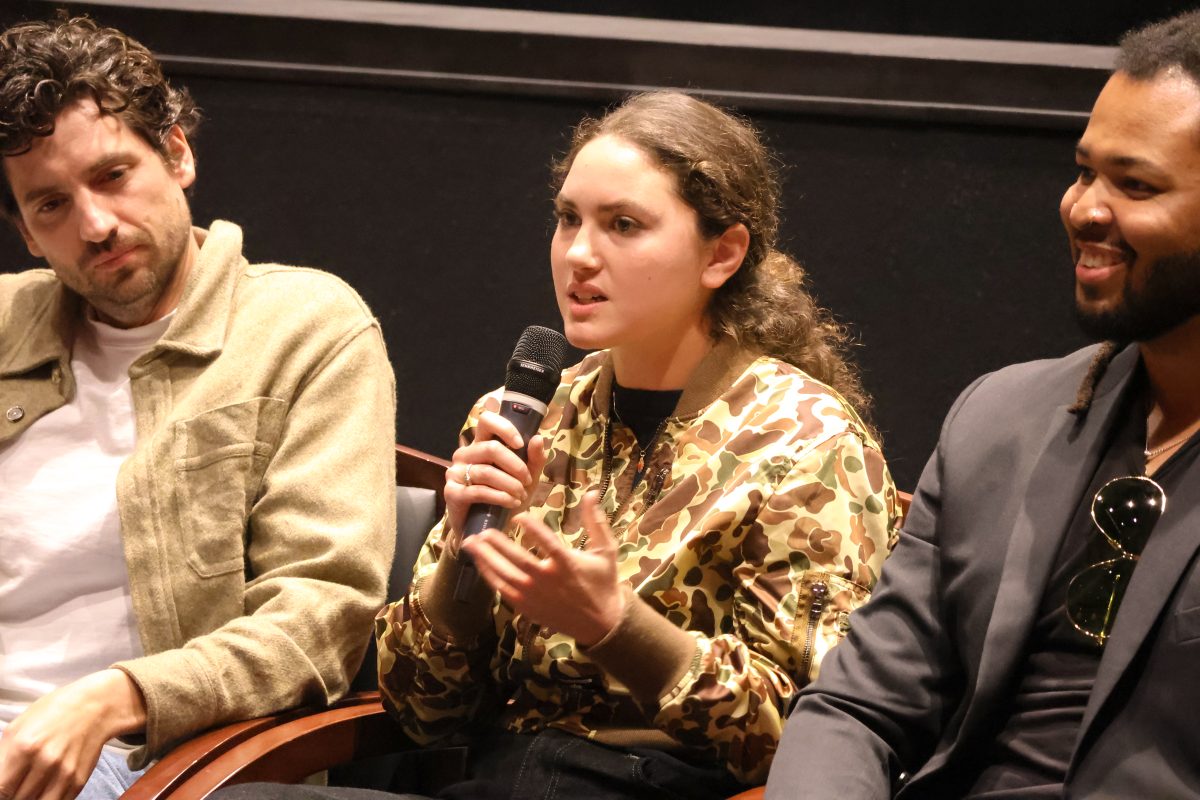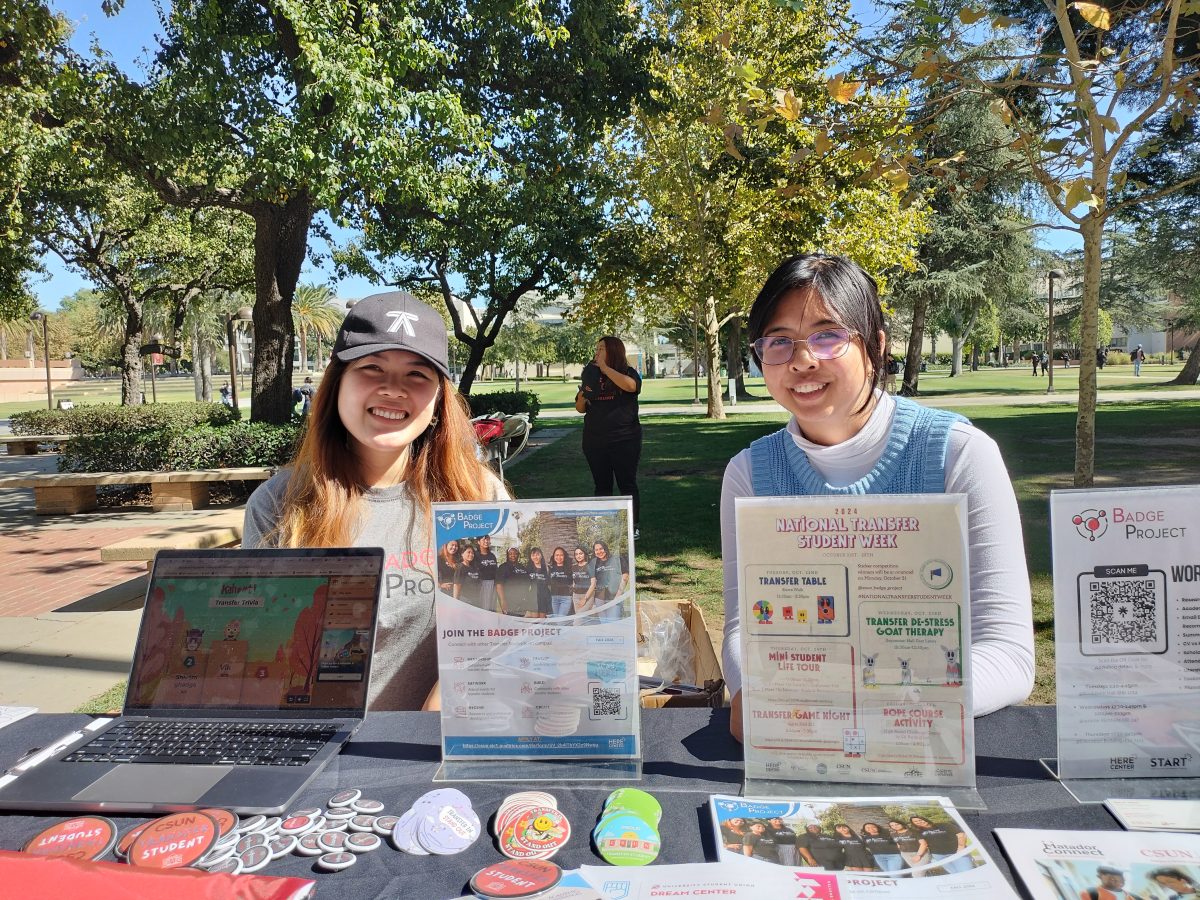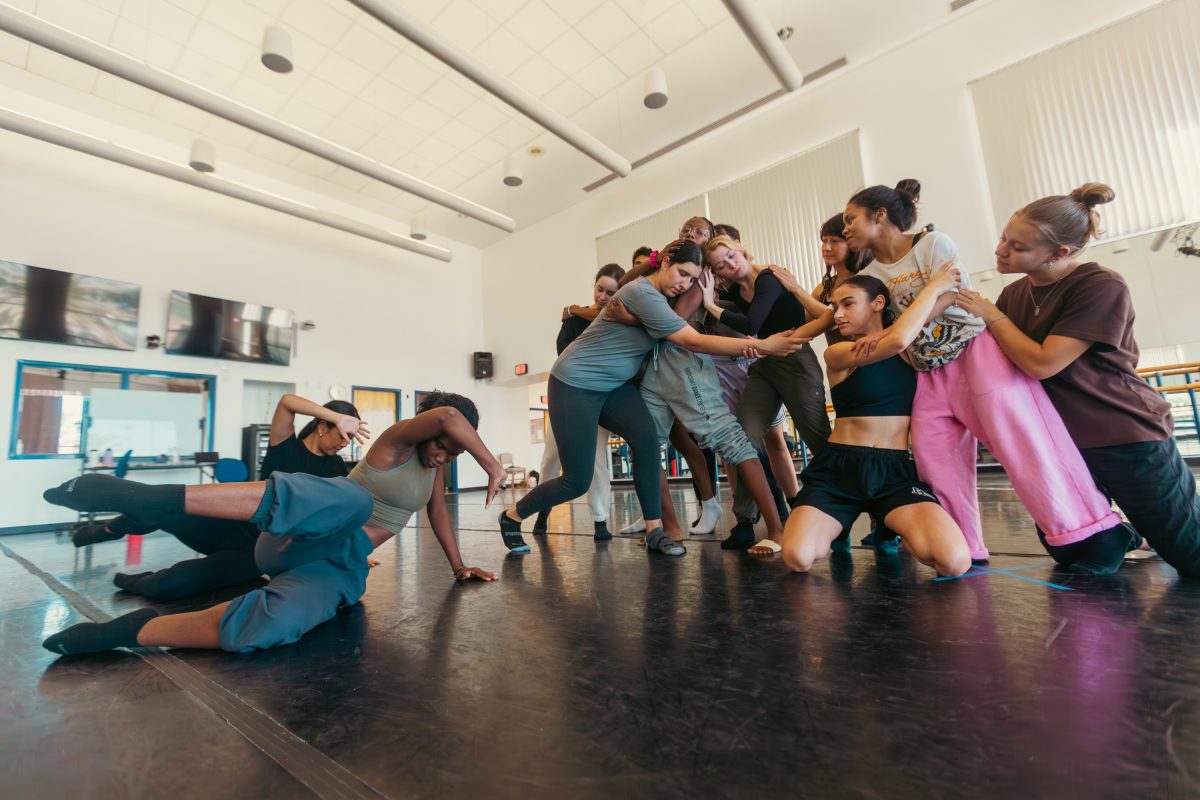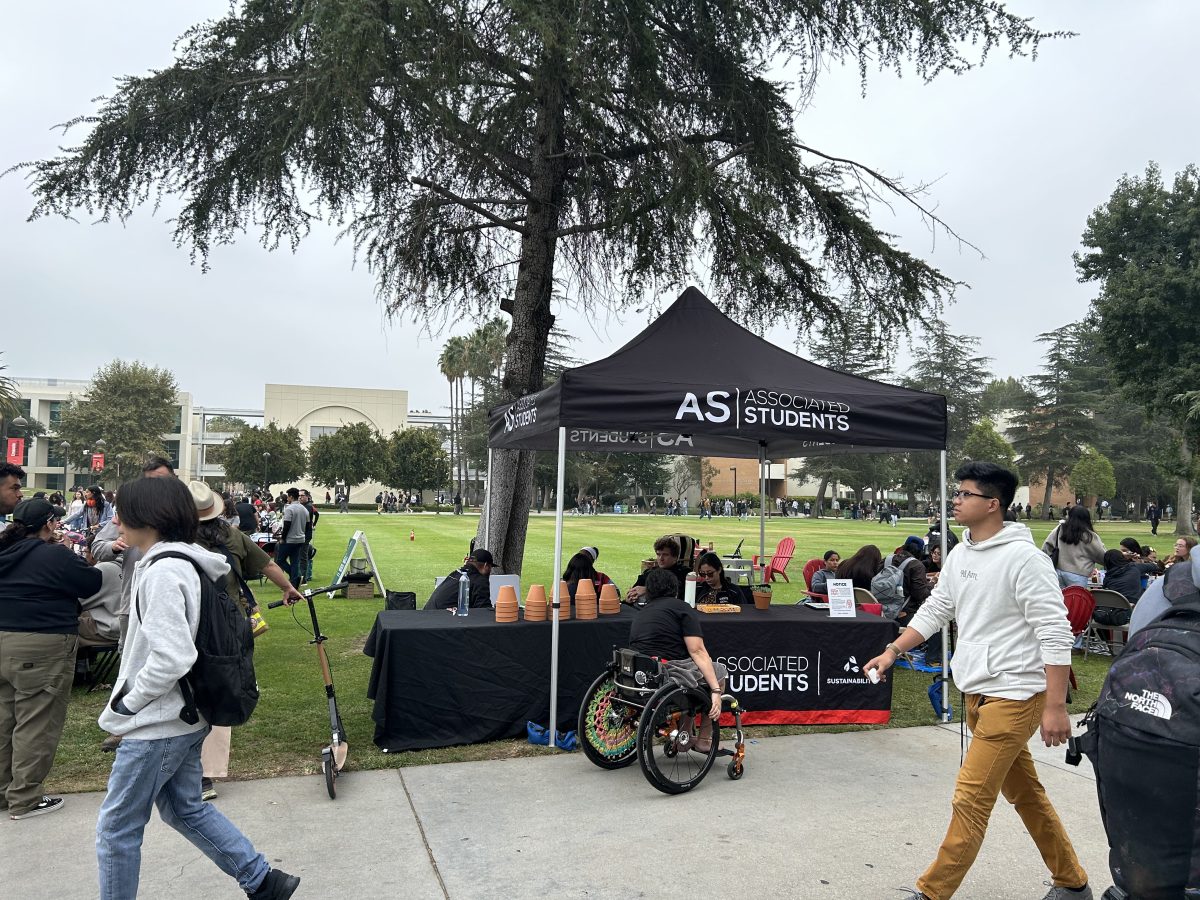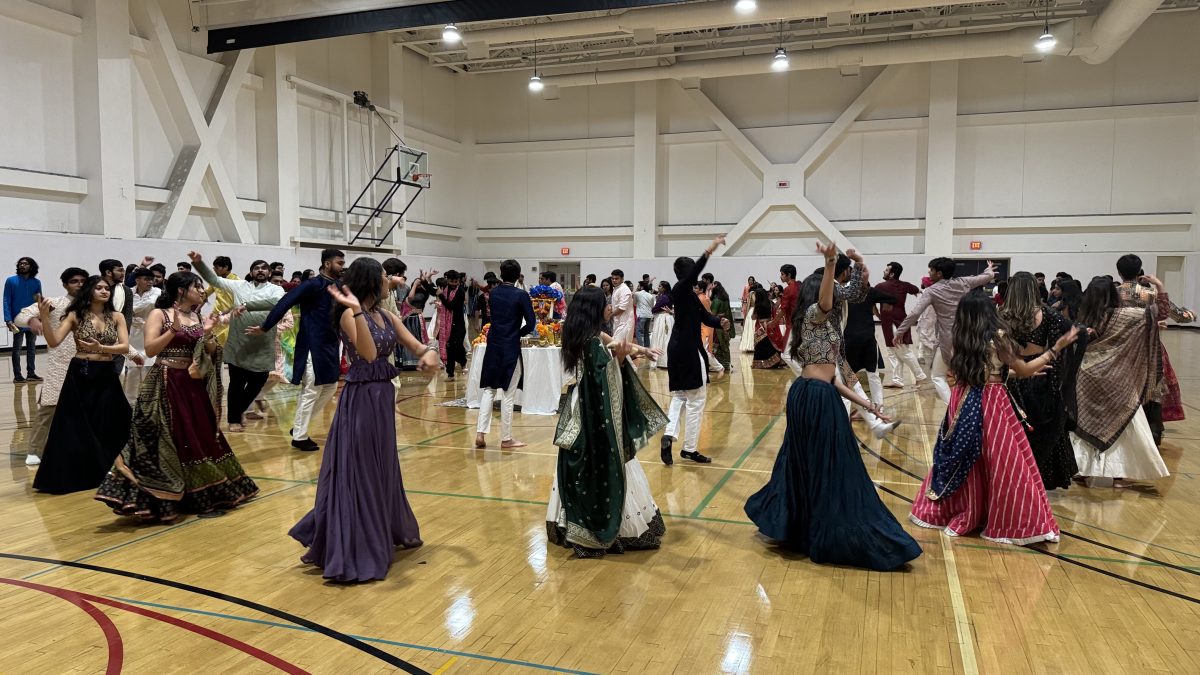
When you are assigned to team up with a group in class, you are asked to work well with these students, share the work fairly and make a commitment to complete the assignment at hand. These are tasks that are often asked from a sports team, but working well with others is a quality that will help prepare you when you embark upon a career path.
Asian American studies professor Glenn Omatsu believes that teamwork has enabled CSUN students to be more prepared for the workforce in comparison to students at other universities. Omatsu, who also teaches at UCLA, believes that CSUN students obtain something useful that UCLA students are not exposed to as much–the ability to work well as a team member.
Through his observations at both universities, Omatsu has determined that classes at CSUN tend to involve more group work and team projects.
“I’ve taught many years at UCLA and I’ve noticed that they are more about the individual learner than they are here at CSUN,” he said.
Omatsu explained that getting into groups in class can help students develop socializing skills, allow students to understand the curriculum through their peer’s ideas, and enable students to learn the importance of working with others.
Omatsu has seen various majors and departments at CSUN assign team projects, and students have only benefited from such teamwork.
A two-year study conducted by Pennsylvania State University concluded that group assignments allowed students to learn better and develop more skills than traditional teaching methods. Between the years of 2003 and 2005, students enrolled in a plant systematic course were studied and shown to have developed the abilities to resolve conflicts, communicate better and exercise the use of creativity and time management.
Accounting major Emmanuel Godina explained that working in groups is a common learning technique in his classes and it is helpful in preparing him for his career.
“We learn how to better interact with others, which helps us learn how to interact with customers,” he said. “(In) almost every class there’s a group assignment. You learn to work with other people, which will definitely help us in the business world when we get out.”
Mika Williamson, associate director of recruitment services and compensation at CSUN’s office of human resources, believes that the ability to work well with others can be a quality employers are looking for, but that ultimately depends on the job and what it asks for.
“As for general qualities employers are looking for, I would have to say integrity, commitment, honesty and respects others,” Williamson said. “But when it comes to working as a team, it really depends on the job and the culture, also the company’s mission and values. It really just depends on the job.”
Though working well with others is not a required job skill, mechanical engineering major Ryan Camire has observed that it is certainly one that is admired in most job fields.
“You can’t always do things on your own, (and) it’s almost impossible for you not to communicate with other people in your job,” Camire said.
In an example describing the importance of teamwork at both work and school, Camire explained his workload for the week, which consisted of four group projects. According to him, students in his major “never do anything by themselves.”
In comparing the CSUN campus with UCLA’s, Omatsu also addressed professors’ teaching methods. According to Omatsu, UCLA professors tend to have more teaching assistants than CSUN professors, and the use of teaching assistants prevents students from working as a group.
CSUN geography professor Steve Graves acknowledged the decision many professors make regarding teaching assistants. Graves believes that if a professor has teaching assistants they are more likely to assign more individual work, because it is easier to grade papers with the help of an aid.
When assigning individual work, it is harder and takes more time to grade than it would grading a group assignment, Graves said.
“So professors who have teaching assistants will have more help when it is time to grade and so they can provide as much individual work as they wish,” he explained.
UCLA business and economics major Lupmi Balanzar says there are usually one or two teaching assistants in each of his classes, though bigger classes tend to have six to seven aids. Balanzar’s classes do not involve much group work, and lectures are typically followed by discussions between students and teaching assistants.
“The only time I really work in a group is when I form study groups outside of class,” Balanzar said. “But actual group work structured in class doesn’t really happen.”
CSUN English professor Nathaniel Mills believes that group work can be beneficial for a student depending on their courage to speak out in class.
“I generally assign group work to encourage class participation,” he said. “Small groups may be better for students who feel more comfortable speaking in front of a smaller group than the whole class. Especially if the class is large and they can’t get their points out there, small groups can allow them to.”
Despite the confidence boost some students receive when working with others, some professors may not assign group work because of conflicts between students. As Graves said, “groups can cause drama and I don’t like drama.”
Such drama may occur because of group members not fairly sharing the work, he added. Some group members might be irresponsible which can affect the grades of their harder-working teammates.
Psychology major Mayra Ornelas enjoys working in groups but admits that if you do not have a good group, “then you may get more stress than if you were working alone.”
When students slack off, other members of the group are left to pick up the pieces in order to get a good grade, she said.
While negative aspects of working in groups exist, Omatsu still believes that the pros outweigh the cons.
“I remember reading a list somewhere of the best qualities employers are looking for and the ability to work with others was in the top three,” Omatsu said. “That is saying a lot if a quality like that beats other qualities you expected would be more important. It just shows how important it is to know how to communicate with others well.”

